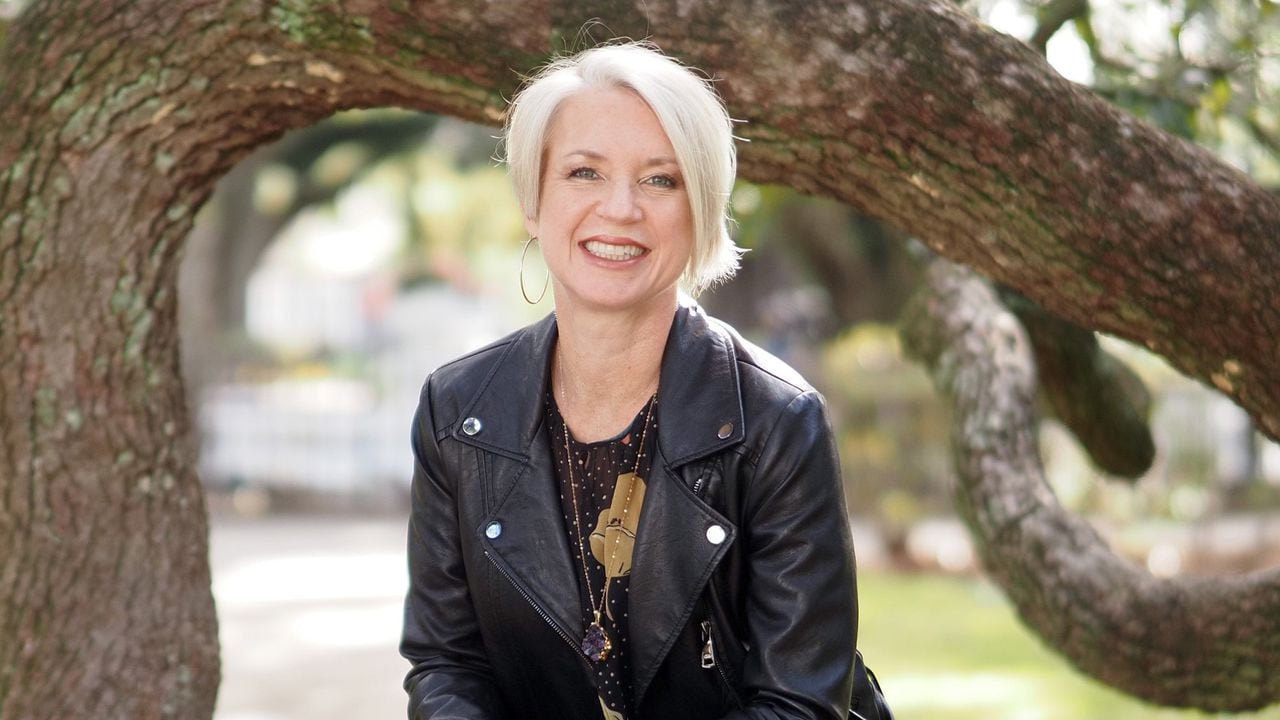Poetry âpart of a healthy community,â says Mobileâs new poet laureate
Charlotte Pence, the University of South Alabama professor selected to serve as Mobile’s first poet laureate, said she hopes to serve as an “ambassador for poetry” who helps people of all walks tap into the connective power of the art.
“I want to show how poetry is accessible,” Pence said. “It is vital. It’s just part of a healthy community. I think sometimes people think of poetry as this ‘other’ thing for a few people. But it really isn’t and it doesn’t need to be that way. It has, for me at least, such a unique ability to be able to connect people to themselves, but also to others, to just learn about other experiences that other people have lived through. And it’s also another wonderful way to be able to connect to nature.”
In an initiative supported by the Alabama State Council on the Arts, Mobile and Birmingham each announced last fall that they would select a city poet laureate. In Birmingham, the search was led by Create Birmingham; in Mobile, the Mobile Arts Council oversaw the process. Both city governments were involved, with their respective mayors given the final choice from a slate of finalists. In December, writer and educator Salaam Green was announced as the new Birmingham poet laureate.
“There is great power in the written word, and there are so many stories worth telling in the city of Mobile,” Mobile Mayor Sandy Stimpson said in a statement announcing Pence’s selection. “We are thrilled to have someone as talented and passionate as Dr. Pence representing our community. I also want to thank the Alabama State Council on the Arts and the Mobile Arts Council for their partnership and leadership on this initiative.”
Pence is the director of USA’s Stokes Center for Creative Writing, in which capacity she already is involved with community outreach projects and events open to the public. That should serve as preparation to meet the requirements of the poet laureate position, which are heavy on public engagement. Candidates were told during the application process that “roles and responsibilities include making local appearances, facilitating public and educational programs, and building advocacy and community through poetry.”
“I am honestly so excited to be able to do this,” said Pence. “I’ve been wanting to do more specifically with poetry in the town, because there are a lot of good, good poets in this town, a lot of people who are writing. But I also have done a little work over at the Taylor Park Recreation Center, and so I see how kids and teenagers respond to poetry that need poetry. So I definitely am looking forward to doing events for all ages. Teenagers, adults, seniors, everybody needs poetry.”
“I think poetry is more ingrained in our lives than what we might realize,” Pence said. “Like at weddings, for example, funerals, you always want a poem. But I think it’s also in our consciousness in other ways, like I can’t help but think of the poem on the Statue of Liberty. When I see the Statue of Liberty, I think, ‘Give me your tired, your poor, your huddled masses …’ And that was from a poem by Emma Lazarus. She was actually one of the first important Jewish poets in the United States. So I think it is more in our daily life, when we think about it.”
Pence said that while she hasn’t mapped out full plans for her two-year term, she wants to give a reading in March, hopefully during the city’s monthly art walk, “to introduce Mobile to my writing and then at the reading announce a few of the projects that I have in mind.”
Pence and Green each will receive an honorarium of $5,000 over the course of their term and poems will be published by their respective cities in the form of a book that will be made available during public events. The stipends are funded by the Alabama State Council on the Arts.
Elliot Knight, executive director of the state council, previously said the idea came in part from seeing how such programs had worked in cities outside Alabama, such as Columbia, S.C., and Chapel Hill, N.C. But the program is designed to allow each community to find its own voice.
“There’s a lot of flexibility within it for it to kind of develop uniquely in any community that has one, and based on whoever that poet is,” Knight said.
According to information provided by the city of Mobile, Pence has been a professor in the USA English Department since 2017. Her poetry has been published in the “Harvard Review,” “Sewanee Review,” “Poetry” magazine and other journals. Her books of poetry include “Code” and “Many Small Fires.” Her work can be found at www.charlottepence.com.
